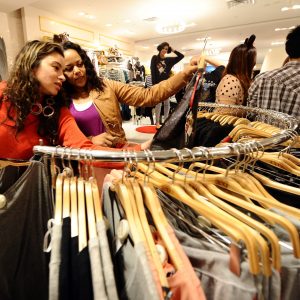
Clothing prices fell by 2.6 per cent between October and November 2020, compared with a rise of one per cent a year ago.
The ONS pointed out that throughout 2020 it has seen clothing and footwear prices follow a different pattern compared with previous years.
It recorded increased discounting during March and April, probably in response to the lockdown, then prices were relatively stable compared with previous years to August.
Between August and October, prices broadly increased as usual, but this has been followed by a fall between October and November, whereas prices usually tend to rise between these two months.
This latest fall reflects increased discounting compared with last month.
The CPIH 12-month rate, which includes owner occupiers’ housing costs, also fell to 0.6 per cent in November, down from 0.9 per cent in October.
Rachel Winter, associate investment director at Killik & Co, said: “Unsurprisingly consumer spending and consumer confidence took a knock during the second national lockdown in November and inflation has further reduced.
“While vaccine hopes and flourishing retail sales over the last few weeks ahead of Christmas injected a glimmer of hope into a flatlining economy; Greater London and parts of the home counties being put into tier three restrictions, and the ensuing impact on the hospitality and leisure industries, will dampen back down any prospects of a recovery.
“Unemployment has also shot up to the highest rate on record further rocking consumer confidence and they will continue to exercise caution when it comes to discretionary spend. All this will impact inflation figures, although a no-deal Brexit outcome, which is a real possibility, will weaken sterling and cause imported food price inflation, further hitting consumers.”















